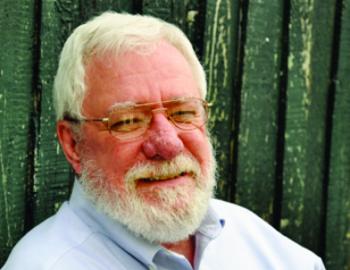
It takes a smuggler to raise a village
On Oct. 25, 1849, the Planters’ Banner in Franklin quoted several paragraphs from an article in the New Orleans Picayune, that pointed out decades later something that Jean Lafitte and others had learned long before – that coastal Louisiana was then (and largely still is) a smuggler’s paradise.
Our bayous and bays and coastal inlets offer unparalleled hiding places where small boats can unload just about anything they can carry. It was a headache for lawmen in Lafitte’s day, for revenue agents during Prohibition, and is still a headache for sheriffs in coastal parishes watching for drug smugglers.
The argument that prompted the 1849 observation was over where to locate a customs house. At the time, the customs agent for the Teche country was in Franklin, with a deputy in Patterson (then known as Pattersonville). The Picayune argued that Berwick Bay would be a more likely place to collect duties; the people in Franklin maintained that things worked just fine as they were, and that the agent should be in the courthouse town (which was Franklin).
“We mentioned some time since,” the Picayune reported, “that the harbors in the vicinity of the mouth of the Atchafalaya presented most ample opportunities for smuggling goods from foreign ports into this country, The various and numerous outlets on the coast, leading to Berwick’s Bay, to say nothing of the secret passages in the bayous, affords the greatest security and protection to the smuggler, especially since there are no Government officers stationed there to prevent a contraband trade being carried on.
“Silks, wines, brandies and liquors from France and cigars from Cuba can be brought into the country with the greatest of ease and conveyed by steamer to New Orleans or up the river. We do not assert that such is the fact, though we must confess that we have tasted direct importations brought into Attakapas, which we were credibly informed never underwent the inspection of Uncle Sam’s marker. . . . One thing is certain, that wherever a great temptation is presented, there are always persons to avail themselves of the chances.
“Under the present circumstances,” the article continued, “with the custom-house situated at Franklin on the Teche, although there is a deputy collector at Pattersonville, it may be said that there is no protection offered to the revenue, for there are no officers stationed lower down, and a boarding officer is not known here. The custom-house should be at some point on Berwick’s Bay with a sufficient number of officers to guard against fraud.”
The newspaper supported an effort by some government officials who were urging Congress to move the customs house to Berwick Bay. Businessmen and most consumers, were not so adamant; they apparently liked the idea of getting expensive goods without paying taxes on them. Also, boat captains didn’t seem to want more government snooping into their cargo.
Daniel Dennett, editor of the Franklin newspaper led the argument that his town was the proper place for the customs house and that no change was needed.
“The Picayune appears to feel a great interest in having our custom-house removed to Berwick’s Bay,” Dennett wrote. “It must be thought by some that the custom-house at this place is next in importance to that at New Orleans. The idea of having the office at the Bay, ‘with a sufficient number of officers to guard against fraud,’ seems a little extravagant when we reflect that our Custom-house officer … does not make much more than half enough out of the office for his own support. He is a lawyer, an agent for the Life Insurance company, and has several other strings to his bow, and still is not getting rich. How an officer at the Bay is to pay his own expenses and employ a ‘sufficient number of officers to guard against fraud,’ we are unable to understand.”
Dennett argued further that a good boat was more important than a new location. The customs agent, he said, “can detect smugglers about as well at Franklin as at the Bay unless he has some sort of sailing craft.” He said the agent had asked the government for a boat “for years” but had “received no satisfaction.”
The Franklin editor also suggested the possibility of an ulterior motive for the suggested move.
“If the masters of the vessels do not complain at the present arrangement, and we are sure they do not, planters and merchants should not grumble,” Dennett argued. “As soon as the government will furnish a boat for the use of the custom house officer, we should think it well for a deputy collector to be appointed at Berwick’s Bay, and not before. The gist of the joke is that our Bay friends want to hatch up a little village in their neighborhood, and they think a custom house would make a very good nest egg.”
You can contact Jim Bradshaw at jimbradshaw4321@gmail.com or P.O. Box 1121, Washington LA 70589.
- Log in to post comments
